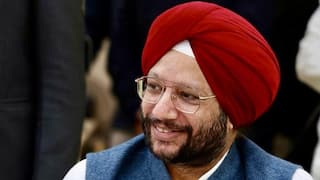Explorer
GST Council reduces tax rates on 27 goods, approves quarterly return filing

Image: PTI
New Delhi: Facing severe criticism over the implementation of Goods and Services Tax, the government on Friday announced a slew of measures to ease the concerns of traders, exporters and small business while slashing the rates on 27 items of common consumption, including roti, khakra, namkeens, stationery, man-made yarn -- with most of them brought to five per cent category. The Goods and Services Tax (GST) Council on Friday raised the threshold limit for Composition Scheme to Rs 1 crore and allowed quarterly return filing for traders having Rs 1.5 crore turnover to ease the tax filing for small traders. "Traders having Rs 1.5 crore turnover, which are approximately 90 per of assessees outside Composition Scheme, can now file quarterly return," Finance Minister Arun Jaitley said after the Council's 22nd meeting here, coming two days after Prime Minister Narendra Modi promised to remove the shortcoming in the new indirect tax regime and to ease woes of traders. The registered buyers from such small taxpayers would be eligible to avail input tax credit on a monthly basis. The tax rate on services, including government contracts involving large labour, job work services in relation to imitation jewellery, some food and food products has been reduced from 12 per cent to 5 per cent. Tax rate on man made yarn was reduced to 12 per cent from the current 18 per cent, which is expected to provide relief to the textile industry. Moreover, tax rate on unbranded namkeen, unbranded ayurvedic medicine, e-waste, paper waste, rubber waste, plastic waste was reduced to 5 per cent. The Council also increased the threshold for Composition Scheme under which traders, manufacturers and restaurants have to pay a fixed tax rate of 1, 2 and 5 per cent respectively. The scheme can be availed only by those businessess who operate within the state and do not have inter-state sales. "For small and medium taxpayers, the tax burden is less but compliance is more. So the threshold has been now increased. So far 15.5 lakh taxpayers have opted for composition scheme," Jaitley said. A total of 72 lakh taxpayers have migrated from the old regime and 26 lakh new taxpayers have registered under GST. About 95 per cent of the revenue is collected only from large assessees, he said. Taking stock of the exporters' working capital that was getting blocked under GST affecting their cash liquidity, the Council has decided to disburse their refunds through cheques for July and August from October 10 and October 18 onwards respectively. A new electronic system of e-wallet is being created for exporters, which will be implemented from April 1, 2018. The exporters will receive some notional credit in their e-wallet as advance. They will pay their tax and the refund will get offset within the wallet. A technology company will be allotted the task to develop e-wallets for exporters. Till then, exporters will have to pay nominal GST of 0.1 per cent for procuring goods from domestic suppliers for export. The Council decided to form a group of finance ministers (GOM) to discuss issues including, allowing inter-state traders under composition scheme, reducing GST on restaurants and exempting zero rated goods in calculation of turnover. The GOM will have to submit its report within a period of two weeks. E-way bill, which allows for seamless movement of goods worth over Rs 50,000, is likely to be implemented from April 1, 2018. The system shall be introduced in a staggered manner with effect from January 1,2018 and shall be rolled out nationwide with effect from April 1, in order to give trade and industry more time to acclimatise itself. The reverse charge mechanism has been deferred till August 31, 2018. Under it, if a registered trader buys goods from unregistered supplier, the compliance of the unregistered buyer is the responsibility of the registered trader. "The reverse charge mechanism will be reviewed by a committee of experts. This will benefit small businesses and substantially reduce compliance costs," Jaitley said. Presently, anyone making inter-state taxable supplies, except inter-state job workers, is compulsorily required to register, irrespective of turnover. It has now been decided to exempt those service providers whose annual aggregate turnover is less than Rs 20 lakh from obtaining registration even if they are making inter-state taxable supplies of services. This measure is expected to significantly reduce the compliance cost of small service providers. After assessing the readiness of the trade, industry and government departments, it has been decided that registration and operationalisation of TDS/TCS provisions shall be postponed till March 31, 2018.
Related Video
Uttarakhand News: Winter Chill Grips North India; Kedarnath Dham Covered in Snow
Follow Breaking News on ABP Live for more latest stories and trending topics. Watch breaking news and top headlines online on ABP News LIVE TV
Top Headlines
India
Jammu and Kashmir
News
Cities

Justin M Bharucha
Opinion




































